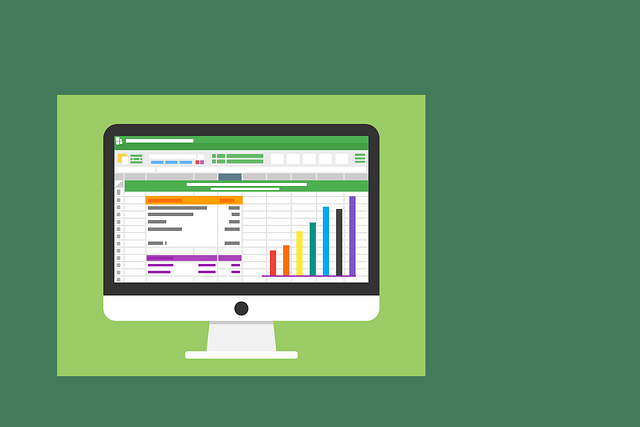The Sarbanes-Oxley Act (SOX) dictates strict standards for US financial reporting and governance, emphasizing transparency through robust Internal Controls over Financial Reporting (ICFR). Certified Public Accountants (CPAs) are pivotal in ensuring SOX compliance within financial IT systems by implementing controls, conducting risk assessments, and verifying data integrity. This involves adhering to strict data retention practices, access controls, and comprehensive audit trails to safeguard financial records and enhance stakeholder trust. Continuous vigilance, leveraging advanced monitoring tools, and adopting best practices like system updates and access control accounting measures are essential for long-term SOX compliance among accountants.
“In the dynamic landscape of finance, CPAs face a formidable challenge: ensuring their financial IT systems align with stringent regulatory requirements. This article explores SOX compliance as a cornerstone for accountants, delving into its crucial role in maintaining integrity within IT infrastructure. We’ll navigate key areas demanding adherence, from data security to internal controls. By implementing strategic approaches and adopting best practices, CPAs can master SOX, fostering long-term compliance and enhancing their professional credibility.”
- Understanding SOX Compliance: A Vital Framework for Financial IT Systems
- The Role of CPAs in Ensuring Regulatory Adherence
- Key Areas of Financial IT Systems Requiring SOX Compliance
- Implementing Robust Internal Controls: A Strategic Approach
- Continuous Monitoring and Auditing for Effective SOX Compliance
- Best Practices for Maintaining Long-Term SOX Compliance for Accountants
Understanding SOX Compliance: A Vital Framework for Financial IT Systems

The Sarbanes-Oxley Act (SOX) is a pivotal piece of legislation that has significantly shaped financial reporting and governance practices in the United States. For accountants, particularly CPAs, SOX compliance is an indispensable framework to ensure the integrity and reliability of financial data. This act mandates robust internal controls over financial reporting (ICFR), placing a significant emphasis on transparency and accuracy. As a result, CPAs are responsible for implementing and maintaining effective IT systems that align with these regulatory requirements.
SOX compliance involves rigorous testing and documentation of internal controls, including those related to IT systems handling financial data. Accountants must ensure that the accounting compliance IT tools in place create secure environments, maintain data integrity, and provide comprehensive audit trails. This includes safeguarding sensitive information through robust file security measures, as well as implementing processes that enable detailed tracking and review of financial transactions. By adhering to SOX guidelines, CPAs can enhance the overall reliability of financial reporting, instilling confidence in stakeholders.
The Role of CPAs in Ensuring Regulatory Adherence

Certified Public Accountants (CPAs) play a pivotal role in ensuring financial IT systems comply with regulatory requirements. With the implementation of laws like Sarbanes-Oxley (SOX), CPAs are now responsible for establishing internal controls over financial reporting processes, including those supported by IT systems. They conduct comprehensive assessments to identify potential risks and vulnerabilities in IT infrastructure, focusing on access controls accounting and compliance monitoring mechanisms.
By examining audit trails IT systems generate, CPAs verify data integrity and security, ensuring that only authorized personnel can manipulate financial records. This process involves rigorous testing of access controls accounting measures, such as user permissions and activity logs, to safeguard against unauthorized access or manipulation. Through these efforts, CPAs contribute significantly to maintaining the accuracy and reliability of financial information, thereby enhancing trust in public markets.
Key Areas of Financial IT Systems Requiring SOX Compliance

The Sarbanes-Oxley Act (SOX) imposes stringent requirements on financial IT systems to ensure accurate and reliable financial reporting. Key areas that demand meticulous attention from accountants include data retention policies, access controls, and audit trails. Effective IT for financial reporting necessitates robust mechanisms to store, retrieve, and track changes in financial data. This involves ensuring data integrity, confidentiality, and availability.
Additionally, SOX compliance requires CPAs to implement strict data retention practices. These ensure that all relevant financial records are preserved for the required period, facilitating seamless audits and investigations. Furthermore, IT legal support plays a pivotal role in helping CPAs navigate the complex regulatory landscape by providing guidance on best practices and ensuring their IT systems align with SOX mandates.
Implementing Robust Internal Controls: A Strategic Approach

Implementing robust internal controls is a strategic approach that CPAs should embrace to navigate the complex landscape of financial IT system regulation. Sarbanes-Oxley (SOX) compliance demands that accountants establish effective procedures to ensure data integrity and transparency, thereby fostering trust among stakeholders. By integrating access controls accounting into their practices, CPAs can enforce strict data retention policies and limit user access, mitigating potential risks.
This proactive measure not only meets SOX requirements but also strengthens the overall security posture of financial systems. Regular compliance monitoring becomes more manageable when internal controls are well-defined and consistently executed. Such a strategic approach empowers accountants to manage risks effectively, ensuring that data is secure, accessible only to authorized personnel, and retained for the necessary period, thereby facilitating smooth operations and fostering public confidence.
Continuous Monitoring and Auditing for Effective SOX Compliance

Maintaining SOX compliance is a continuous process that requires rigorous monitoring and auditing for accountants and CPAs managing financial IT systems. Effective SOX compliance involves implementing robust data retention policies, ensuring all transactions are accurately documented, and establishing comprehensive audit trails within IT systems. Regular reviews and assessments help identify gaps and vulnerabilities in these processes.
By integrating advanced compliance monitoring tools, CPAs can automate the tracking of critical controls, generate real-time reports, and facilitate proactive issue resolution. This not only enhances overall SOX compliance but also allows accountants to focus on strategic financial decision-making rather than laborious manual checks. A well-designed data retention strategy, coupled with meticulous audit trails IT, is essential for demonstrating regulatory adherence and building trust in financial reporting processes.
Best Practices for Maintaining Long-Term SOX Compliance for Accountants

Maintaining long-term SOX (Sarbanes-Oxley) compliance is a continuous process that demands dedication from CPAs. To ensure sustained adherence, accountants should implement robust best practices encompassing regular system updates and testing to mirror evolving regulatory landscapes. This includes integrating access controls accounting measures within IT systems to safeguard sensitive financial data, thereby mitigating potential risks of fraud or manipulation.
Moreover, leveraging specialized accounting compliance IT tools facilitates automated monitoring and reporting, streamlining the SOX compliance process for accountants. Regular IT audits for accountants become more manageable with these tools, enabling proactive identification and remediation of gaps in access controls and other security protocols. Ultimately, this holistic approach not only ensures ongoing regulatory adherence but also cultivates a culture of data integrity and transparency within financial operations.
